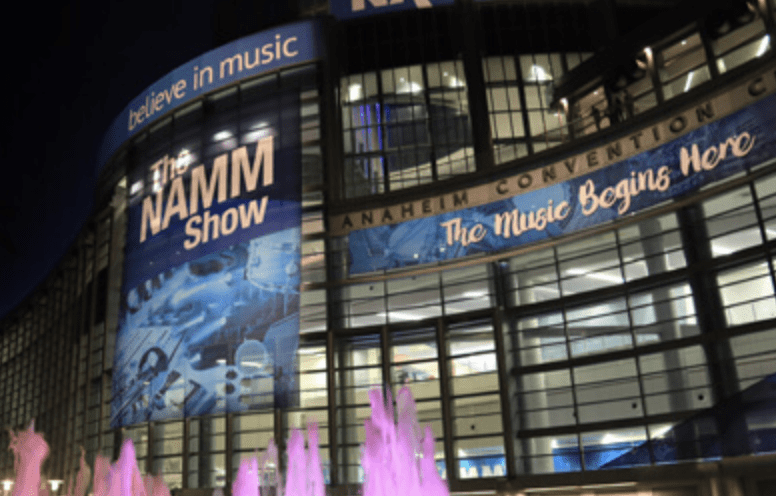 There’s been much talk in recent weeks – really in the past months – about developments over at Steinway Musical Instruments: sale of the flagship Manhattan Steinway Hall showroom that closed in June, the early July deal with Kohlberg & Co. to accept that group’s $35 per-share offer, then the most recent offer from Paulson & Co. which brings the (current) sale price for the famed brand to something in the neighborhood of $500M.
There’s been much talk in recent weeks – really in the past months – about developments over at Steinway Musical Instruments: sale of the flagship Manhattan Steinway Hall showroom that closed in June, the early July deal with Kohlberg & Co. to accept that group’s $35 per-share offer, then the most recent offer from Paulson & Co. which brings the (current) sale price for the famed brand to something in the neighborhood of $500M.
It’s legitimately big news, of course: we’re talking big money, big names, and lots of action. What I find myself wondering, though, is: What’s the big deal?
I mean, obviously that’s a crass oversimplification and – equally obviously – many people care. Employees, dealers, stock owners, players, Steinway owners, and fans all care about the future of the company. I care about the future stability of Steinway & Sons. Not only is the overall health of the industry pretty directly related to my own financial and professional well-being, but given that Steinway’s HQ (for now, anyway) is located in metro-Boston and I’m a pretty unabashed homer, it’s a point of pride to have such a legendary marquee down the street.
Not that there’s necessarily been a huge hue and cry about Paulson or Kohlberg or whomever else acquiring Steinway. There’s been some because there always is, but as Larry Fine, author of The Piano Book, told New York Public Radio earlier this summer: “Steinway has endured takeovers before… the company’s been remarkably stable… through all of these sales, the pianos have overall improved and the management has been very competent and it’s transcended the ownership. I’m not particularly worried.”
And John Paulson appears to be a true fan of the instruments. “I’ve always been enamored with the product,” he told The New York Times on August 14th. “You have Mercedes in cars, and top brands in every other area. But no one has such a high share of the high end [as Steinway].”
So there you go: Deep sigh.
I just wonder at the degree of hand wringing and “Oh, no…” that seems to accompany any big shift within our industry. It’s not often that a company of any significant age is still in the hands of the original owners (in Steinway’s case, the sale that transferred ownership from the Steinway family to CBS took place in 1972 – some 120 years after the first “Steinway & Sons” instrument). It’s also not often that those who acquire a legendary and beloved name actively run that name into the ground.
I know there are exceptions to that assertion. Colossally poor management, shoddy designs, lamentable employer/employee relationships, risky financial decisions (and on, and on…) have, in fact, submarined plenty of companies and brands with impeccable pedigrees and history.
I’ve either witnessed in “real time” or read and heard the horror stories about beloved musical instrument suppliers changing hands. Everyone talks about the nightmare that was “the CBS years” over at Fender after the sale in 1965. Meanwhile at Fender’s primary competition, just a few years later, the Gibson parallel would be “the Norlin era.” Gretsch (both guitars and drums) also endured a relatively bleak period during roughly the same timeframe (I guess the ‘70s really were rough!). And the list goes on.
I’m not saying there wasn’t mismanagement during those periods of time for those companies (and others) or that the quality of product may have slipped when compared to “the glory days” for any of those organizations. But, I don’t know… have you priced a ‘70s Gibson Les Paul lately? Have you played one? Checked out an early ‘70s Fender P-Bass? Pretty valuable, gorgeous instruments, if you ask me.
And, back to the present day, both Fender and Gibson’s current ownership teams (much like the ownership of many – if not, indeed, all – current stewards of longstanding brands) are under close scrutiny and even criticism from those who long for “the good old days.”
This could just be a momentary and irrational (I never claimed to be rational) reaction to years of “Oh no! Now we’re all in deep trouble because of [fill in the blank with the cause célèbre of the month]” that goes on in the MI trade.
So where am I going with all this? What’s the point?
If all goes to plan, the current Steinway deal will close sometime in September. My guess is that, ten years from now, there will still be Steinway pianos and legions of players who adore them. I also suspect that by 2023, any number of other major brands will have been bought (and sold), but that most will still be with us in one form or another.
So, I guess I’m – in highly uncharacteristic fashion – advocating for a cheery outlook. Not just, or specifically, about Steinway. Chin up, MI industry. As Winston Churchill said, “Attitude is a little thing that makes a big difference.”























